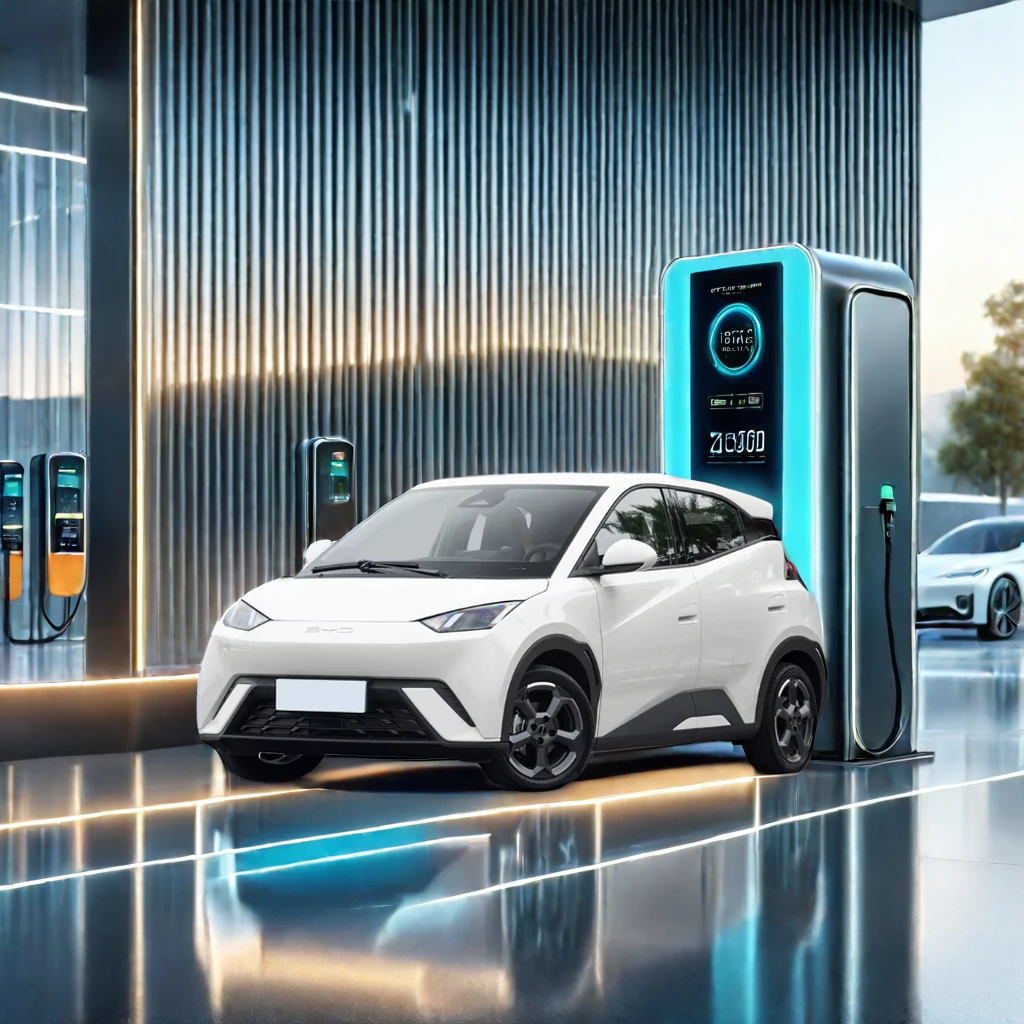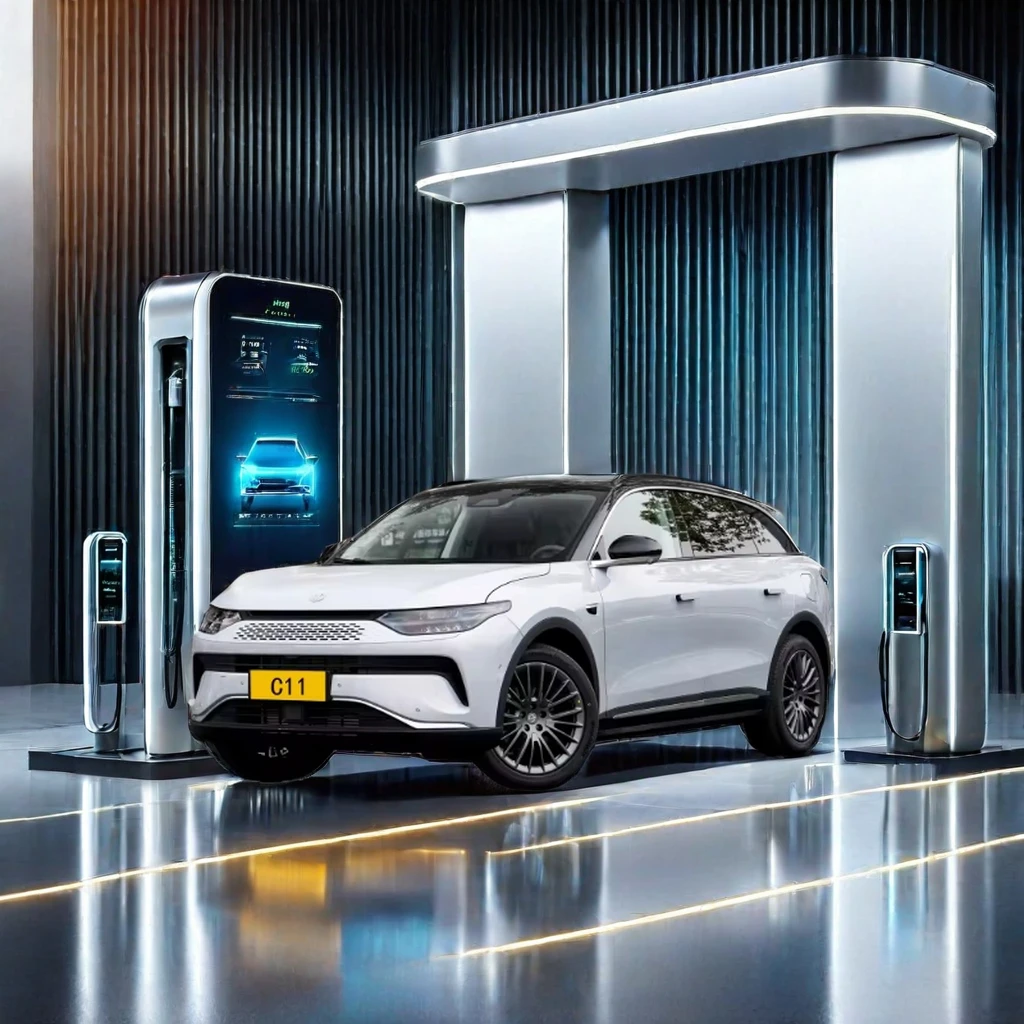The global electric vehicle (EV) market is anticipated to experience exponential growth, with predictions projecting a market size surpassing $800 billion by 2030. This increase is expected to make up more than 25% of new vehicle sales worldwide. The surge in EV demand is largely driven by government policies encouraging clean energy adoption and shifting consumer preferences toward sustainable practices. The International Energy Agency (IEA) forecasts annual EV sales could climb to 145 million by 2030, marking a significant shift in the automobile industry. Major manufacturers are ramping up their EV production lines, presenting new export opportunities to satisfy global demand.
To address the rising demand for electric vehicles, prominent automobile manufacturers are also expanding their EV offerings. This expansion is fundamentally altering new vehicle export strategies as global transportation and trade regulations evolve. Companies must adopt efficient export strategies to compete in growing markets and leverage this rapid transformation. With countries around the globe enacting stricter environmental regulations, manufacturers must adapt their offerings to meet these varied requirements, ensuring that EVs match both governmental and consumer needs for sustainable alternatives.
Advancements in battery technology are pivotal in reducing costs and enhancing energy density and charging speeds, which are essential to the increased global export of electric vehicles (EVs). Companies like Tesla and CATL are pioneering the development of solid-state batteries, which promise longer ranges, thus making EVs more appealing on the international stage. As battery technologies advance, they provide a more efficient and accessible solution, enabling automobile manufacturers to enhance their cross-border trade capabilities.
Efficient battery recycling processes also play a crucial role in supporting the international trade of EV batteries. These improvements contribute to reduced environmental impacts and align with global sustainability goals that many countries are striving to achieve. Additionally, by adhering to stringent environmental regulations and adopting innovative recycling methods, manufacturers can significantly broaden their export reach, capitalizing on the growing interest in eco-friendly vehicle technologies. This alignment paves the way for increased global EV exports while maintaining commitment to sustainability standards.
Blockchain technology is transforming export documentation within the automotive sector by providing enhanced transparency and security. This technology minimizes the risk of fraud and ensures timely delivery through immutable record-keeping. Major organizations like IBM are working on blockchain solutions that allow automakers to track vehicles throughout the supply chain. This capability adds an additional layer of accountability to the automotive export process. Furthermore, the adoption of smart contracts can automate complex processes in international trade, reducing transaction times and costs.
AI technology is revolutionizing logistics networks by enhancing predictive capabilities for demand forecasting and route optimization in automobile exports. By utilizing predictive analytics, companies can better align production with market demands, thereby minimizing waste and speeding up delivery. The rise of AI in logistics also allows for the implementation of dynamic pricing models that adapt to real-time market conditions. This optimizes the cost-efficiency and reliability of exporting vehicles, meeting the fluctuating demands of global markets, as evidenced by the growing interest in used Honda cars for sale and used Kia cars.
China has solidified its position as a global leader in electric vehicle (EV) manufacturing, accounting for nearly 60% of the world's total EV production. This dominance is affording China not just the role of a significant supplier but also of an influencer in setting global standards. The Chinese government's strategic investment in export infrastructure, focusing on logistics and customs modernization, has significantly streamlined the international shipping process for EVs. This infrastructure upgrade is crucial for delivering vehicles efficiently to global markets, thus enhancing China's competitive edge.
Emerging Chinese automotive brands like NIO and Xpeng are making substantial headway in European and North American regions, further reshaping competitive dynamics in the global automobile sector. These brands leverage cutting-edge technology and innovative marketing approaches to capture consumer interest outside China. For instance, NIO's battery swap technology offers a unique selling proposition that appeals to eco-conscious consumers and regulators alike. Such advancements not only increase the competitiveness of Chinese manufacturers but also challenge established market players.
Japanese car manufacturers are capitalizing on their expertise in hybrid technology to tap into emerging international markets. As the demand for sustainable and efficient vehicle solutions rises globally, iconic models like the Toyota Prius and Honda Insight continue to set the benchmark for innovation, emphasizing attributes such as fuel efficiency and reliability. These qualities are pivotal in attracting international buyers, especially in regions where automotive markets are rapidly evolving.
Regulatory frameworks in some countries are increasingly favoring hybrid and eco-friendly vehicles, prompting Japanese manufacturers to adapt their export strategies accordingly. For example, regions with stringent emissions standards tend to welcome hybrid vehicles, which align well with environmental regulations. Consequently, Japanese carmakers are tailoring their offerings to meet these specific needs, utilizing their hybrid technology as a bridge to new markets, while reducing their carbon footprint.
China and Japan’s strategic moves in the automobile export landscape perfectly illustrate how regional powerhouses are reshaping global trade dynamics. From electric to hybrid innovations, these Asian leaders are setting new benchmarks in the industry. As export infrastructure evolves, and automotive needs diversify, the global market will likely see a continued shift towards more sustainable and technology-driven vehicles.
The automotive industry is increasingly adopting carbon-neutral shipping initiatives to mitigate its environmental impact and align with global sustainability goals. As part of this initiative, major shipping companies are investing in green technologies. For example, wind-assisted propulsion and biofuels are being utilized to reduce carbon footprints in logistical operations. These innovations not only represent a crucial step in sustainable shipping but also demonstrate the industry's commitment to reducing its ecological impact and increasing its competitiveness in a climate-conscious market. Frameworks set by organizations like the International Maritime Organization (IMO) play a vital role in guiding and promoting sustainable practices within automobile exports, aligning industry efforts with global standards.
To bolster eco-friendly initiatives, various countries are implementing regulations for the export of remanufactured automotive parts. These regulations ensure that parts comply with stringent environmental standards, thus fostering the circular economy and promoting efficient resource use. By recycling materials, manufacturers are encouraged to enhance the sustainability of their operations while ensuring high-quality parts are available on the global market. Navigating these remanufactured parts regulations is crucial for auto manufacturers aiming to sustainably expand their export reach. By adhering to these eco-friendly export regulations, companies not only comply with international standards but also reinforce their commitment to environmental responsibility, thus enhancing their brand image and market appeal.
The Mengshi 917 Turbo stands out in the electric supercar landscape with its revolutionary 816HP engine that rivals powerhouses in the international luxury car markets. This supercar, tailored for performance-driven and eco-conscious consumers, blends advanced aerodynamics with lightweight materials, setting a new standard in sustainable high-end automotive design. Moreover, its entry into the global automobile export market exemplifies Chinese car manufacturers' commitment to redefining what high-performance electric vehicles can achieve. This innovation showcases how Chinese EVs are expanding their global footprint, offering powerful yet eco-friendly alternatives.

BYD's upcoming release, the 2024 Seagull, represents a strategic venture into compact electric vehicles with a focus on urban utility. Crafted to merge affordability with efficiency, the Seagull is set to make waves in city environments worldwide by offering a practical, eco-friendly alternative as opposed to traditional internal combustion vehicles. Targeting urban dwellers, BYD’s marketing strategy positions the Seagull to effectively challenge established models, enhancing mobility solutions in congested areas while reducing environmental impact. Such urban-focused innovations show Chinese manufacturers' agility in addressing both consumer needs and sustainability goals.

The Leapmotor C11 Hybrid is garnering attention for its fusion of electric and hybrid technologies, catering to consumers seeking an adaptable and versatile driving experience. Positioned at the forefront of a growing trend in the SUV market, the C11 offers competitive advantages such as extended range and cutting-edge technological integrations. Both domestic and international market analyses highlight the increasing demand for such vehicles, setting the stage for Leapmotor's expansion in the automobile export sector. By aligning with modern drivers' needs, the Leapmotor C11 aims to significantly boost the brand's export capabilities.

Drive Better with Carkiss: Trustworthy Geely Car Sales
ALLHow to Navigate the Complexities of Automobile Export Regulations
Next Hot News
Hot News2024-07-18
2024-07-08
2024-07-08
Building 1, Unit 1, 7th Floor, Room 71068, No. 666 Shuangnan Avenue, Dongsheng Street, Shuangliu District, Chengdu City, Sichuan Province
Phone: +86- 18982769819
Email: sales@carkissgo.com
Sichuan Carkiss Automobile CO.,Ltd.
Copyright © 2024 by Sichuan Carkiss Automobile CO.,Ltd.Privacy Policy